
Napguard D 250mg/10mg Tablet
Manufacturer
Cardimind Pharmaceuticals
Salt Composition
Naproxen (250mg) + Domperidone (10mg)
Key Information
Short Description
Napguard D 250mg/10mg Tablet is a combination of two medicines used in the prevention of migraines.
Dosage Form
Tablet
Introduction
Napguard D 250mg/10mg Tablet may be prescribed alone or in combination with another medicine. It can be taken with or without food. The dose and duration will depend on the severity of your condition and how well it helps your symptoms. Use it regularly and do not discontinue using it until the doctor tells you it is alright to stop.
Directions for Use
Take this medicine in the dose and duration as advised by your doctor. Swallow it as a whole. Do not chew, crush or break it. Napguard D 250mg/10mg Tablet may be taken with or without food but it is better to take it at a fixed time.
How it works
Napguard D 250mg/10mg Tablet is a combination of two medicines: Naproxen and Domperidone. Naproxen is a non-steroidal anti-inflammatory drug (NSAID) which works by blocking the release of certain chemical messengers that cause pain due to migraine. Domperidone is a prokinetic which works on the region in the brain that controls vomiting associated with migraine. It also increases the movement of the stomach and intestines allowing food to move more easily through the stomach.
Quick Tips
Have your meals at the same time everyday Avoid bright lights and extreme temperatures Avoid loud music and noisy places Avoid chocolates, cheese, processed food, alcohol and smoking Get enough sleep and avoid stress
Related Medicines
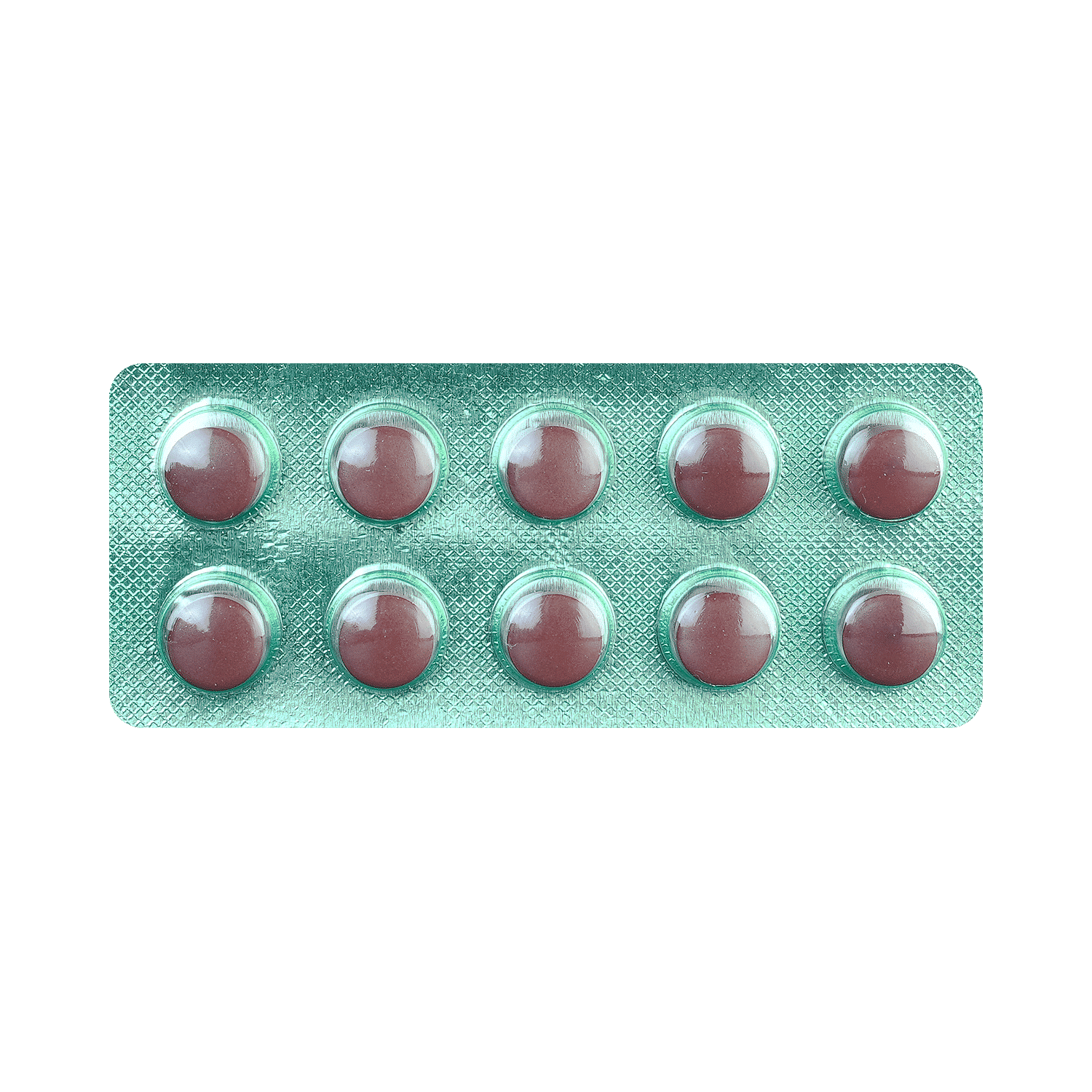
Pacinac NP 250mg/10mg Tablet
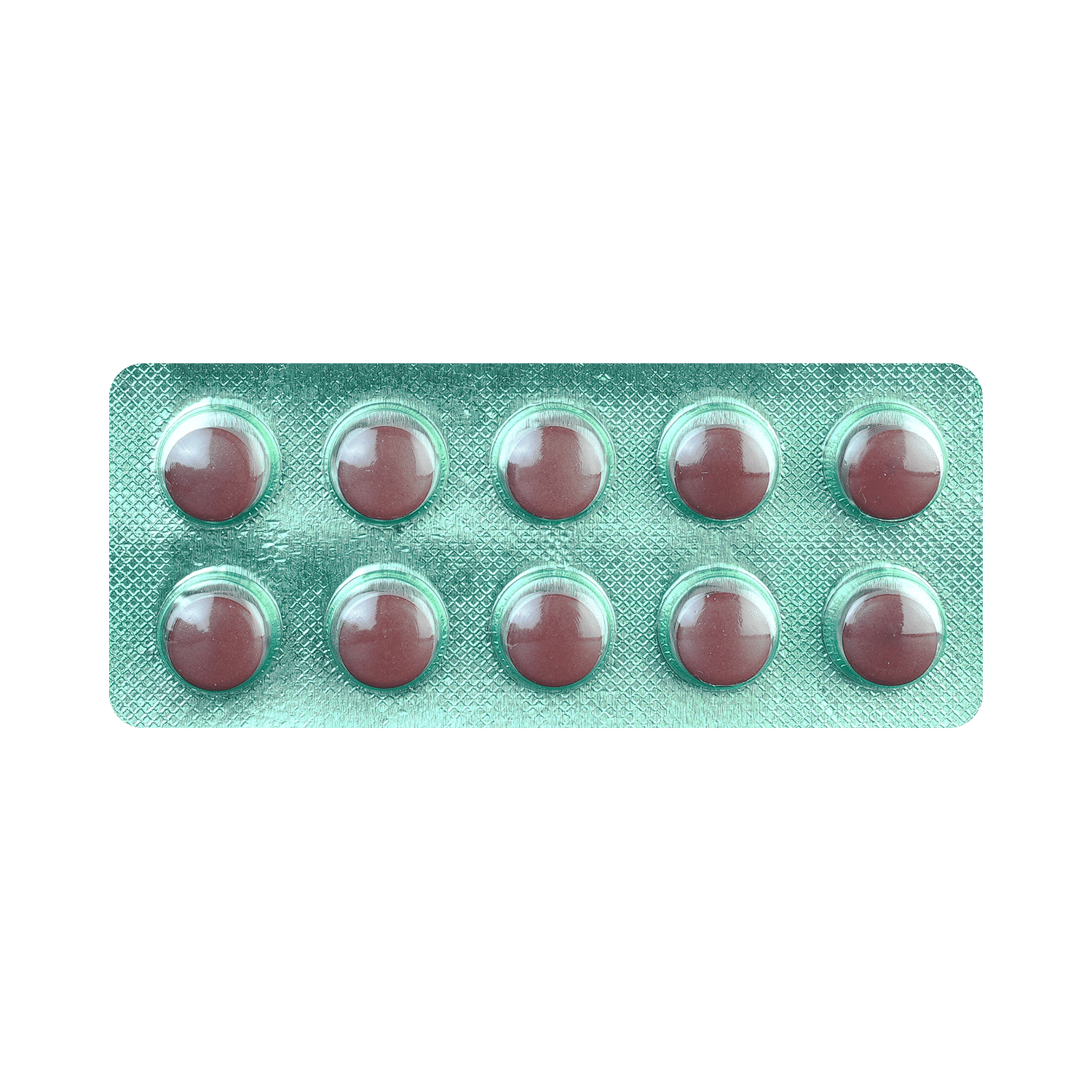
Napra D 250 Tablet
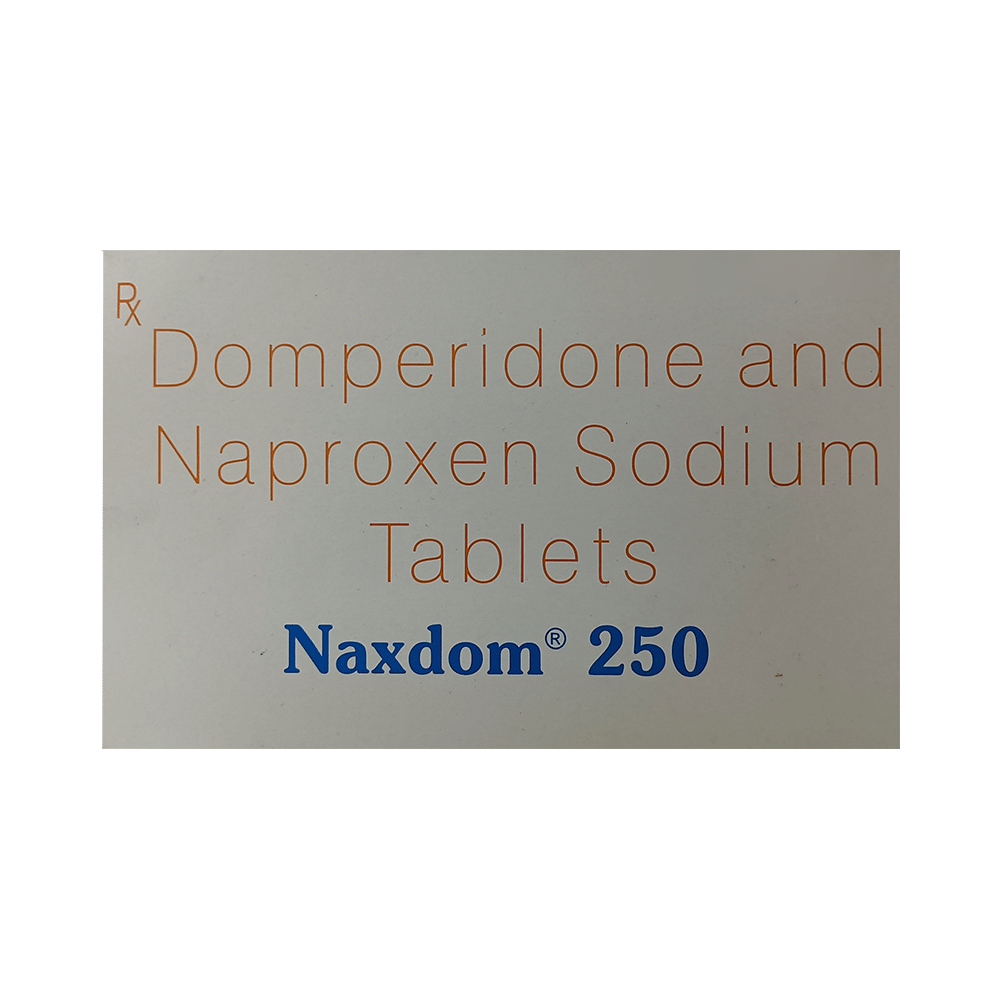
Naxdom 250 Tablet
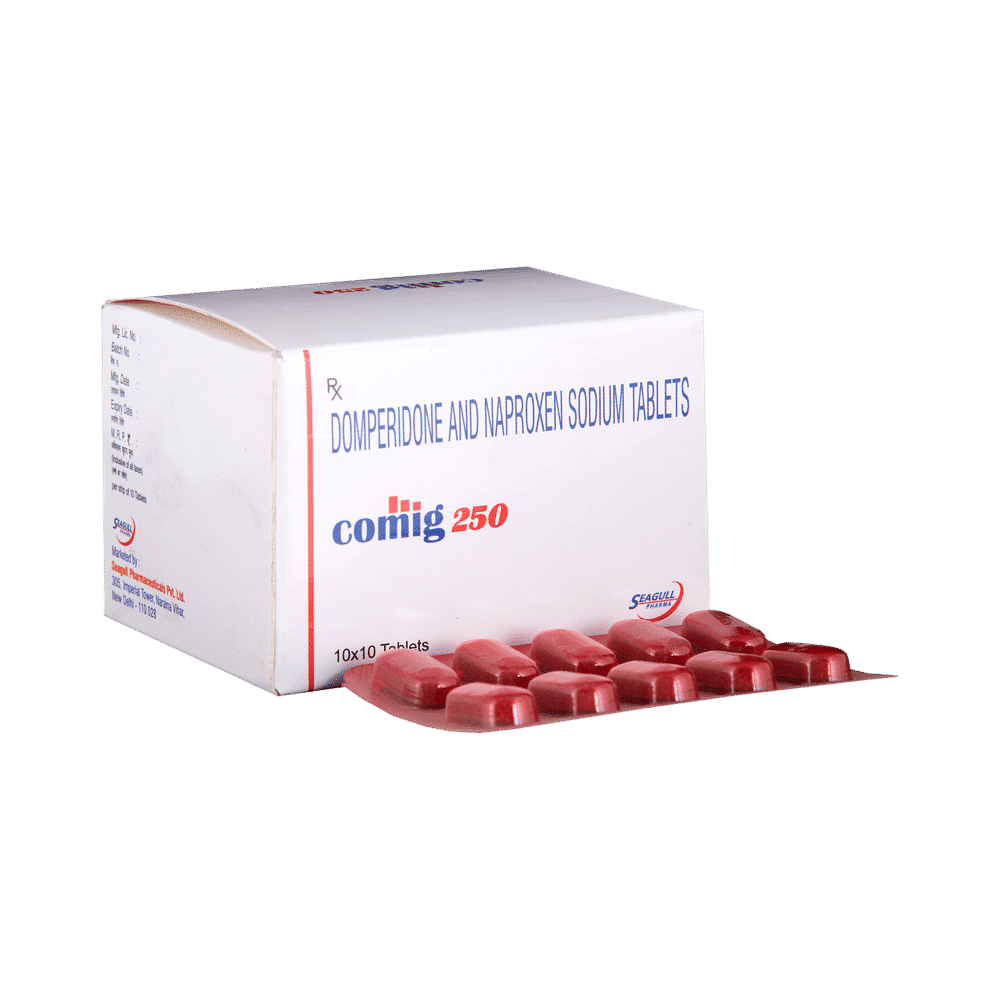
Comig 250 Tablet
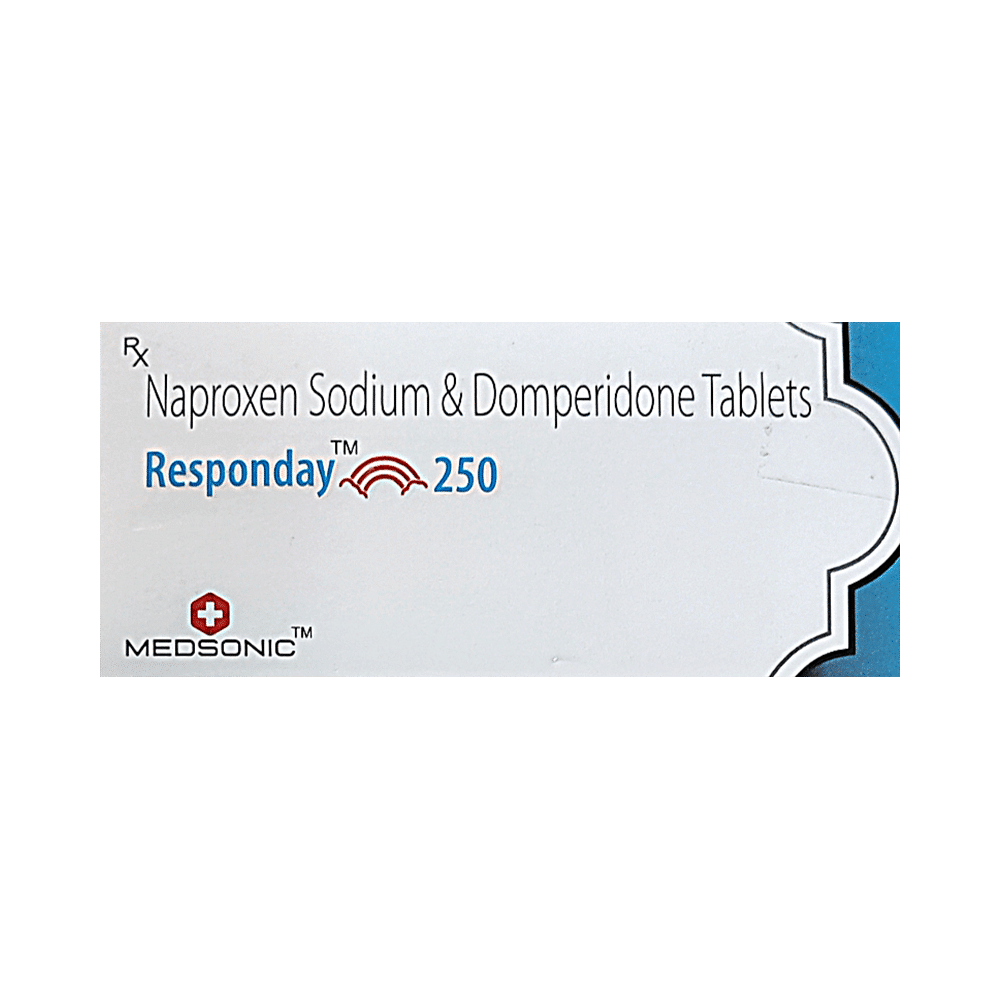
Responday 250 Tablet
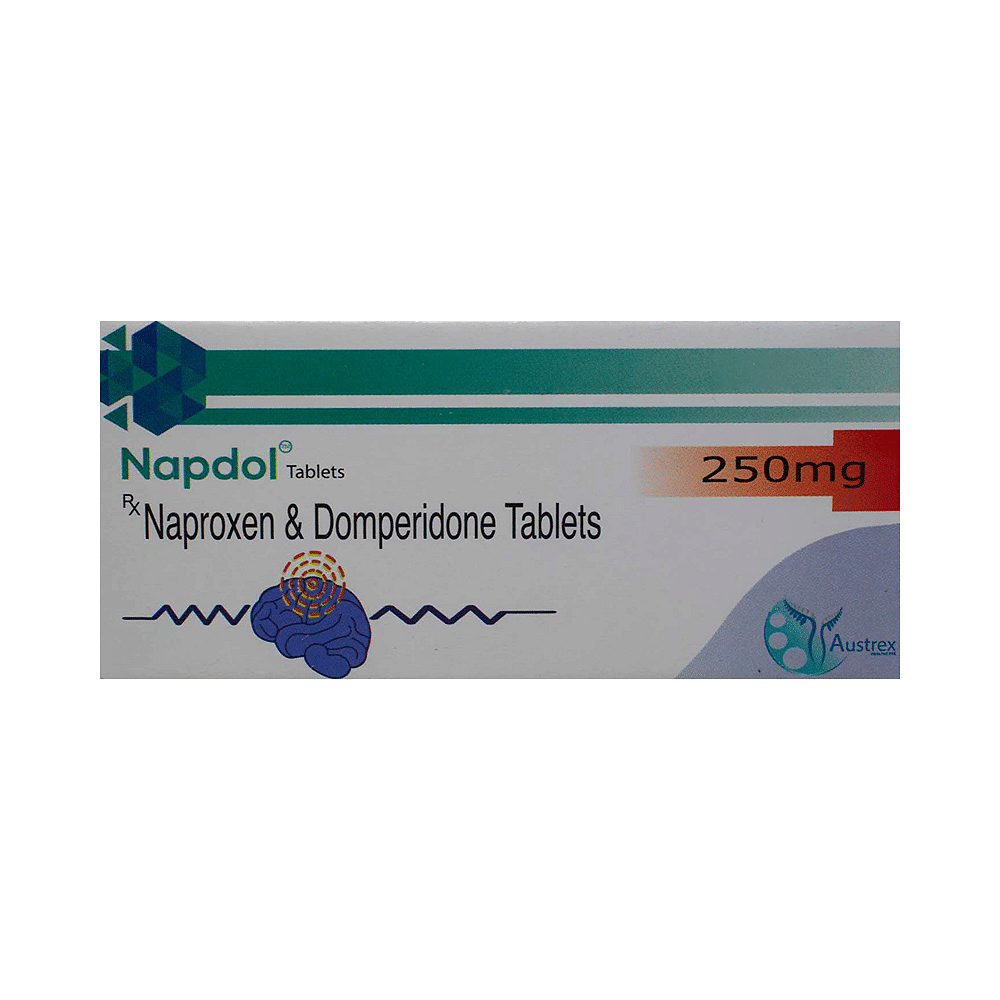
Napdol 250mg Tablet

Naprowel Plus 250mg/10mg Tablet

Napnet D 250mg/10mg Tablet
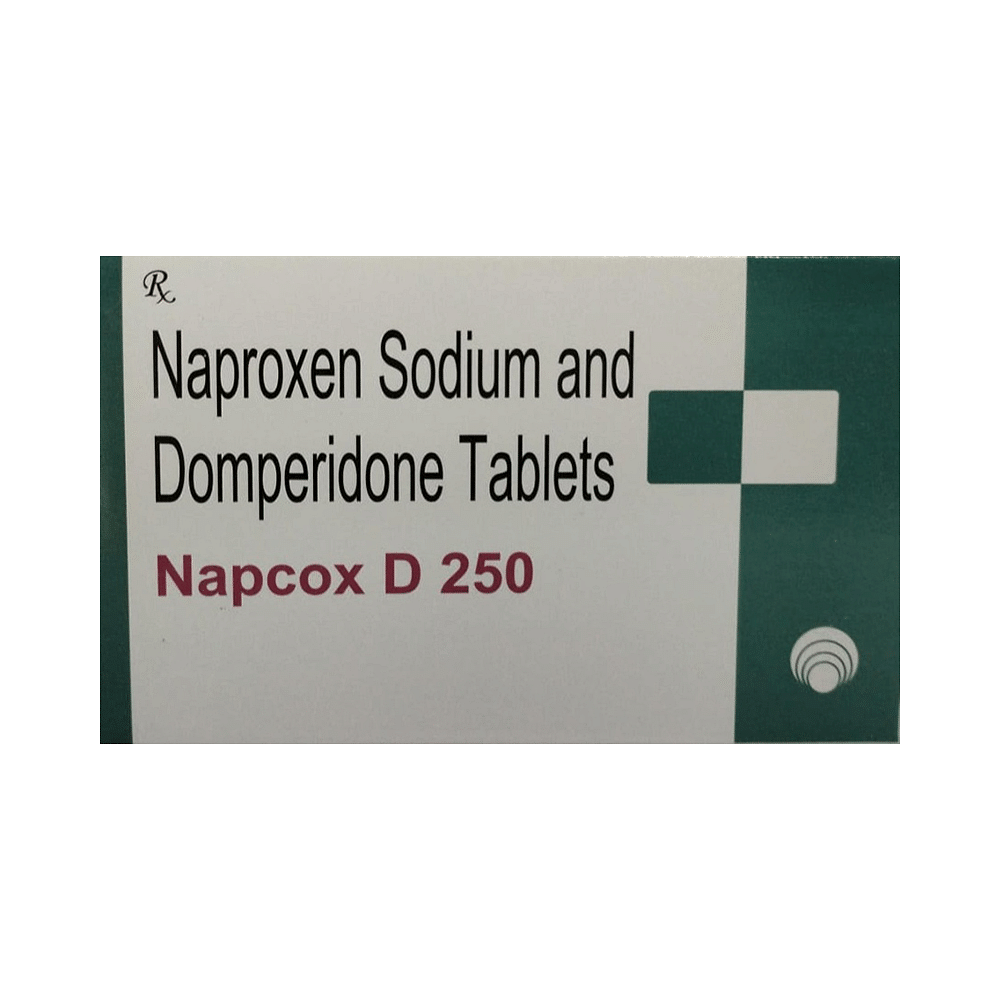
Napcox D 250 Tablet
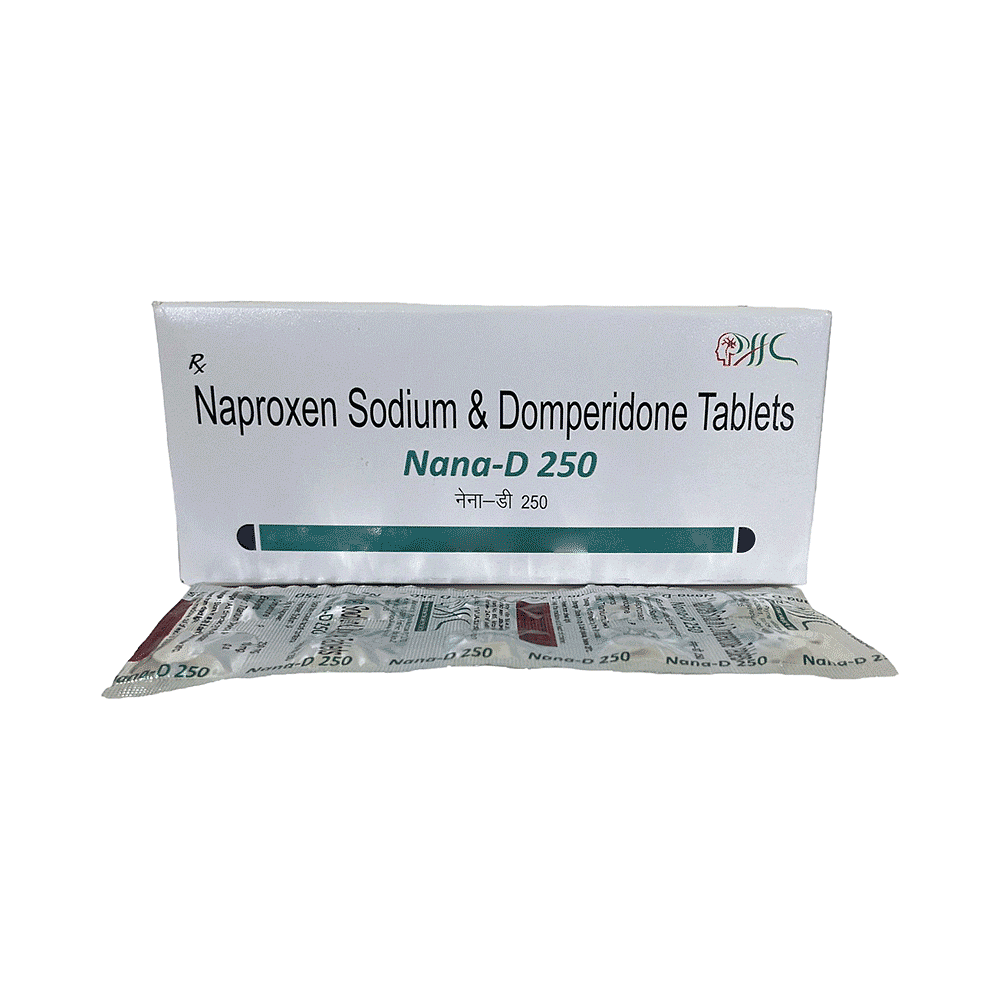
Nana-D 250 Tablet
Frequently asked questions
What is Napguard D 250mg/10mg Tablet?
Napguard D 250mg/10mg Tablet is a combination medication that contains Naproxen and Domperidone. It is used to relieve the symptoms of migraine, including headache, nausea, and vomiting. Naproxen is a pain reliever that blocks the release of certain chemical messengers that cause headache, while Domperidone is an anti-emetic agent that increases the movement of the stomach and intestines, helping to relieve vomiting.
Can I stop taking Napguard D 250mg/10mg Tablet when my migraine symptoms are relieved?
No, it is not recommended to stop taking Napguard D 250mg/10mg Tablet without consulting your doctor. It is important to follow the full course of treatment as prescribed by your doctor to ensure that your symptoms are fully managed and to prevent the risk of relapse.
Can the use of Napguard D 250mg/10mg Tablet cause diarrhea?
Yes, the use of Napguard D 250mg/10mg Tablet can cause diarrhea. If you experience diarrhea while taking this medication, it is important to drink plenty of fluids to stay hydrated. If diarrhea persists or is accompanied by signs of dehydration, such as decreased urine output or dark-colored urine, you should consult your doctor. Do not take any other medication without consulting your doctor first.
Are there any specific contraindications associated with the use of Napguard D 250mg/10mg Tablet?
Yes, the use of Napguard D 250mg/10mg Tablet is contraindicated in patients with a known allergy to any of the components or excipients of this medication, or in patients with a known allergy to other painkillers (NSAIDs). It is also recommended to avoid using this medication in patients with a history of stomach ulcers, active or recurrent stomach ulcer/bleeding, heart failure, high blood pressure, or liver or kidney disease.
Can the use of Napguard D 250mg/10mg Tablet cause damage to kidneys?
Yes, the long-term use of Napguard D 250mg/10mg Tablet can cause damage to the kidneys. This is because painkillers like Naproxen can lower the levels of prostaglandins in the body, which can lead to kidney damage. Patients with underlying kidney disease should use painkillers with caution and under close medical supervision.
Can I take a higher than the recommended dose of Napguard D 250mg/10mg Tablet?
No, taking a higher than the recommended dose of Napguard D 250mg/10mg Tablet can increase the risk of side effects. If you are experiencing increased severity of migraine attacks that are not relieved by the recommended doses, you should consult your doctor for re-evaluation and guidance on alternative treatment options.
What are the recommended storage conditions for Napguard D 250mg/10mg Tablet?
Napguard D 250mg/10mg Tablet should be stored in the container or pack it came in, tightly closed. It should be stored as mentioned on the pack or label. Unused medication should be disposed of properly and not consumed by pets, children, or other people.


